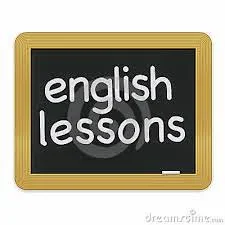I'm
'I'm' is an abbreviation for the word 'I AM.' It is used in combination with other words to tell someone about yourself or to describe something you are doing.
Here are some examples:
"I'm so tired."
"I'm confused."
"I'm happy."
"I'm twenty three years old."
"I'm hungry."
"I'm nervous."
"I'm excited."
"I'm leaving work."
"I'm thirsty."
"I'm from Seattle."
You can also add descriptive words with 'I'm' such as:
"I'm extremely tired."
"I'm very happy."
"I'm terribly hungry."
"I am super excited."
"I'm very nervous."
I'm in/at/on
Describes an action you are doing.Most commonly, you would use the word 'in' when entering a physical location such as a room or a building.
Here are some examples:
"I'm in the shower."
"I'm in the lobby."
"I'm in a car."
"I'm in a house."
"I'm in a school."
Using the word 'at' helps tell someone where you currently are. The difference between 'at' and 'in' is that the physical location is general.
Here are some examples:
"I'm at the grocery."
"I'm at the mall."
"I'm at the doctor's office."
"I'm at the park."
"I'm at the airport."
However, in some cases you can use 'at' and 'in' interchangeably.
Here are some examples:
"I'm at the mall."
"I'm in the mall."
"I'm at the park."
"I'm in the park."
"I'm at the grocery."
"I'm in the grocery."
Using the word 'on' is referring to a non physical location such as your time being utilized by something else.
Here are some examples:
"I'm on the phone."
"I'm on my computer."
"I'm on a bus."
I'm good at
Again, 'I'm' is used here as 'I am.' 'Good at' informs someone what you excel at and are comfortable doing.Here are some examples:
"I'm good at drawing."
"I'm good at video games."
"I'm good at swimming."
"I'm good at driving."
"I'm good at reading."
"I'm good at sports."
"I'm good at writing."
"I'm good at math."
"I'm good at dancing."
"I'm good at chess."
I'm + (verb)
'I'm' is a contraction of the words 'I am.' By adding a verb to 'I'm' this lets you express an action or occurrence about yourself.Here are some examples:
"I'm eating lunch."
"I'm brushing my teeth."
"I'm scared."
"I'm driving to work."
"I'm crying."
"I'm typing an email."
"I'm cooking dinner."
"I'm combing my hair."
"I'm hanging a picture."
"I am texting."
"I am dancing."
"I am interested in the job."
"I am exercising."
"I am sad."
"I am learning."
I'm getting
When combining the words 'I am' and 'getting' you are telling someone 'you' are gaining possession, being affected by or have plans to seek out and obtain a particular thing.Here are some examples:
"I'm getting better."
"I'm getting ready for bed."
"I'm getting a tooth ache."
"I'm getting a cold."
"I'm getting married."
"I'm getting tired."
"I'm getting good at reading."
"I'm getting a new car."
"I'm getting a job."
"I'm getting a puppy."
I'm trying + (verb)
'I am trying' informs someone that you are attempting to accomplish something using bodily, mental, or spiritual strength. By adding a verb to 'I'm trying' you are pointing out exactly what it is you are attempting to do.Here are some examples:
"I'm trying to get a job."
"I'm trying to call my family."
"I'm trying to enjoy my dinner."
"I'm trying to educate myself."
"I'm trying to explain myself."
"I'm trying new food."
"I'm trying to eat healthy."
"I'm trying to understand."
You may also hear the word 'trying' used to express a way someone is feeling. In this manner, it expresses strain or distress.
Here are some examples:
"Learning new things can be trying on you."
"That marathon was very trying on me."
I'm gonna + (verb)
The word 'gonna' is incorrect grammatically. The equivalent in proper grammar would be 'going to.' When using the word 'gonna' you are telling someone what you are planning to do at that moment or in the near future.Here are some examples:
"I'm gonna have some coffee."
"I'm gonna go to work."
"I'm gonna eat some cake."
"I'm gonna send out my resume."
"I'm gonna run a marathon."
"I'm gonna ask her out for dinner."
"I'm gonna stop smoking."
"I'm gonna help my friends."
"I'm gonna take swim lessons."
"I'm gonna read a book."
I'm calling to + (verb)
When using the words 'I'm calling' you are stating that you are actually using the phone to call and relay information.Here are some examples:
"I'm calling to tell you about my day."
"I'm calling to accept your invitation."
"I'm calling to answer your question."
"I'm calling to book a reservation at your restaurant."
"I'm calling to complain about something."
"I'm calling to thank you."
"I'm calling to support your decision."
"I'm calling to remind you of our dinner plans."
"I'm calling to report a lost wallet."
"I'm calling to receive my prize."
I'm working on + (noun)
'I'm' is a contraction for the words 'I am.' The phrase 'working on' relays a physical or mental effort towards an accomplishment.Here are some examples:
"I'm working on a big project."
"I'm working on training my dog."
"I'm working on making new friends."
"I'm working on educating myself."
"I'm working on my homework."
"I am working on painting a house."
"I am working on a new idea."
"I am working on my computer."
"I'm working on my website."
I'm thinking of + (verb-ing)
'Thinking' refers to a process of thought, forming an opinion or judgment. When expressing 'I am thinking of' you are letting someone know what you are personally thinking.Here are some examples:
"I'm thinking of checking out the new movie."
"I'm thinking of filming my vacation."
"I'm thinking of following a healthy diet."
"I'm thinking of handing out flyers describing our business."
"I'm thinking of increasing my work load."
"I am thinking of introducing myself to him."
"I am thinking of launching a new website."
"I am thinking of moving to a new city."
"I am thinking of offering her the position."
"I am thinking of opening up a store."
I'm dying to + (verb)
When using the word 'dying' in this manner you are referring to wanting or desiring something greatly.Here are some examples:
"I'm dying to relax on the beach."
"I'm dying to pick some fresh fruit."
"I'm dying to order some desserts."
"I'm dying to find out if I got the job."
"I'm dying to move to a bigger house."
"I'm dying to look at all the work you've done."
"I'm dying to learn more about you."
"I'm dying to introduce you to my parents."
"I'm dying to expand my business."
"I'm dying to check my score on the test."
I'm having a hard time + (verb-ing)
By stating you are having a hard time you are letting someone know you are having difficulty with something. This could be something physical or mental and something that could be overcome with effort.Here are some examples:
"I'm having a hard time writing."
"I'm having a hard time understanding you."
"I'm having a hard time answering your question."
"I'm having a hard time downloading songs to my iPod."
"I'm having a hard time agreeing to the terms."
With the addition of an adverb you can express in more detail just how difficult something is for you.
Here are some examples:
"I'm having an extremely hard time trusting you."
"I'm having an extremely hard time with my wife."
"I'm having a very hard time finding a job."
"I'm having a very hard time finding parts for my car."
I'm not sure if (subject + verb)
'I'm not sure' expresses a feeling of uncertainty or lack of confidence on a particular matter.Here are some examples:
"I am not sure if they will offer me the job."
"I'm not sure if she'll return my call."
"I'm not sure if my wife will understand."
"I'm not sure if we will go out tonight."
"I'm not sure if I understand your question."
"I am not sure if I can handle it."
"I am not sure if it will happen."
"I am not sure if it will matter."
"I am not sure if my mom will notice."
"I am not sure if they will permit us to park there."
I'm looking forward to
When telling someone that you are 'looking forward to' you are saying that you are waiting or hoping for something, especially with pleasure.Here are some examples:
"I'm looking forward to meeting you."
"I'm looking forward to talking with you."
"I'm looking forward to going on vacation."
"I'm looking forward to spending time with my family."
"I'm looking forward to learning the English language."
"I am looking forward to visiting another country."
"I am looking forward to having a family."
"I am looking forward to graduating from college."
"I am looking forward to watching the baseball game."
"I am looking forward to running in a race."
from http://www.talkenglish.com/





Post a Comment